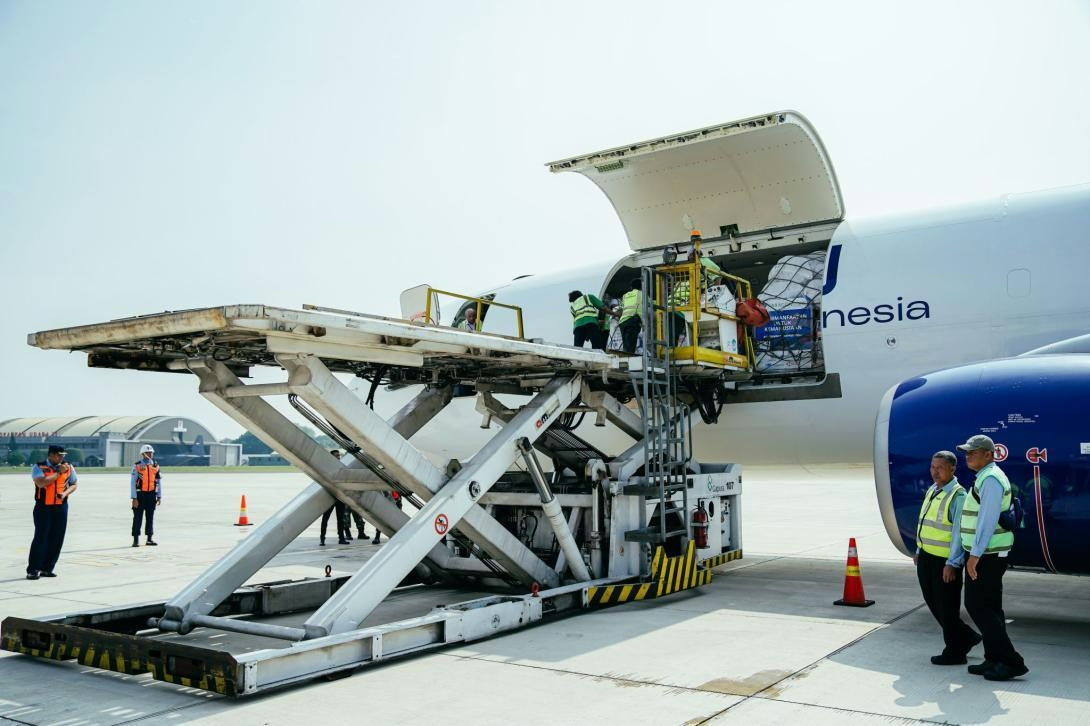AeroGenie — Seu Copiloto Inteligente.
Tendências
Categories
BBN Airlines Indonesia Adopts ACMI Model to Enhance Operational Efficiency

BBN Airlines Indonesia Adopts ACMI Model to Enhance Operational Efficiency
Transitioning to the ACMI Model
BBN Airlines Indonesia, a subsidiary of Avia Management Group Asia (AMGA) under Avia Solutions Group, is pioneering a significant shift in Southeast Asia’s aviation sector by adopting the ACMI (Aircraft, Crew, Maintenance, and Insurance) leasing model. Martynas Grigas, CEO of AMGA, emphasizes that this transition is set to transform operational efficiency and maintenance management in the region. While ACMI leasing has been a well-established practice in Europe, its increasing adoption in Southeast Asia is reshaping how airlines address capacity constraints and operational challenges.
Currently, BBN Airlines Indonesia operates a fleet of six aircraft, comprising three Boeing 737-800s and one Boeing 737-900 for ACMI passenger services, alongside two Boeing 737s dedicated to cargo operations. Historically engaged in scheduled passenger flights on routes such as Jakarta (CGK) and Surabaya (SUB), the airline plans to fully pivot to tailored ACMI services from 2025, moving away from the traditional commercial airline framework.
Market Context and Strategic Advantages
The Asia-Pacific aviation market, led by Southeast Asia, is experiencing a robust recovery following the pandemic. According to the International Air Transport Association (IATA), the region recorded the highest global passenger traffic growth in 2024, with a 16.9% year-on-year increase in revenue passenger kilometres (RPK). Despite this surge in demand, aircraft availability has not kept pace, making ACMI leasing an attractive solution for airlines grappling with capacity shortages.
The ACMI model offers Southeast Asian carriers several strategic benefits. It provides operational flexibility, allowing airlines to scale capacity during peak periods or cover for grounded aircraft without incurring significant capital expenditures. Cost-effectiveness is another key advantage, as ACMI eliminates the need for airlines to invest in aircraft acquisition and long-term staffing. Furthermore, the model mitigates operational risks by transferring responsibility for crew, maintenance, and insurance to the lessor.
A particularly significant but often underappreciated benefit of ACMI leasing is the transfer of maintenance obligations. Under these agreements, the provider assumes full responsibility for aircraft upkeep, including routine inspections, unscheduled repairs, and ensuring airworthiness. This arrangement not only relieves client airlines from complex and costly maintenance duties but also offers greater cost predictability through fixed-rate payments insulated from unexpected maintenance expenses.
Operational Efficiency and Challenges
At BBN Airlines Indonesia, operational efficiency remains a central focus. Maintenance activities are centralized and managed by dedicated technical teams, leveraging Avia Solutions Group’s extensive global Maintenance, Repair, and Overhaul (MRO) network and economies of scale. This integrated approach enhances cost efficiency, maintains high maintenance standards, and reduces the risk of aircraft-on-ground (AOG) incidents for clients.
Nevertheless, the transition to the ACMI model presents challenges. BBN Airlines Indonesia must carefully navigate the complexities inherent in leasing agreements and manage variable maintenance costs, all while maintaining financial stability amid volatile fuel prices and fluctuating market demand. Additionally, there is potential skepticism from investors and customers regarding the long-term viability of the ACMI model, which depends heavily on sustained demand and consistent operational reliability.
Competitive Landscape and Future Outlook
The adoption of ACMI by BBN Airlines Indonesia may prompt competitors within Indonesia to pursue similar strategies to preserve pricing competitiveness and operational agility. This could intensify market competition and potentially lead to price wars. As BBN Airlines Indonesia positions itself as a leading ACMI provider in the region, its capacity to address these challenges will be pivotal in shaping the future success and sustainability of the ACMI model within Southeast Asia’s dynamic aviation industry.

Factors Positioning Airbus for Leadership in 2026

Emirates Unveils Cabin Design for New Boeing 777X

Eighteen Years On, the Airbus A380 Remains Central to a $34 Billion Airline

How a boom in luxury airline seats is slowing down jet deliveries

Navitaire Outage Attributed to Planned Maintenance

Airbus Plans Record Delivery of 870 Aircraft in 2026

DigiYatra Debuts Outside Aviation at India AI Impact Summit

Vietnam Orders Strengthen Boeing’s Commercial Outlook

Airbus Signals Uncertainty Over Future A400M Orders

JobsOhio Awards $2 Million Grant to Hartzell Propeller for Innovation Center
